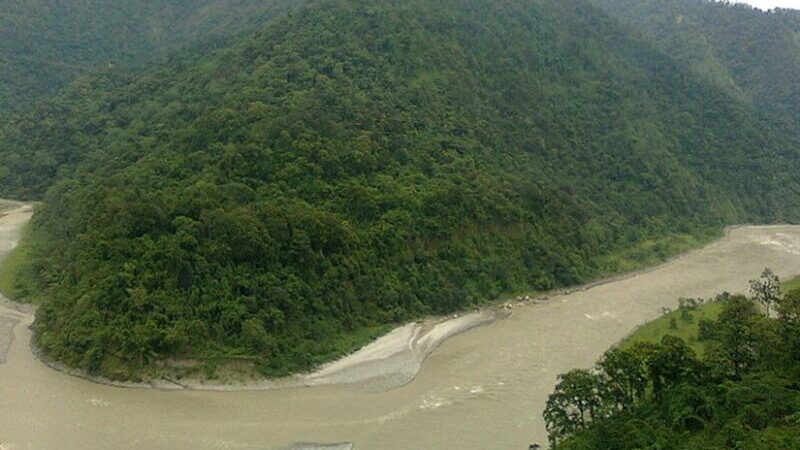Bangladesh-India Relations And Political Calculus Of Mamata Banerjee – OpEd

How the political calculus of Mamata Banerjee impacting the Bangladesh -India relations? The Teesta River, originating in the eastern Himalayas and flowing through the Indian states of Sikkim and West Bengal before entering Bangladesh, has long been a source of contention between India and Bangladesh. At the heart of this contention is the Teesta River Treaty, a proposed agreement intended to share the river's waters between the two nations equitably. However, the treaty has been stalled for years, largely due to the actions of one key player: Mamata Banerjee, the Chief Minister of West Bengal. Her behavior and stance on this issue question the treaty's feasibility and cast a shadow on the broader implications for India-Bangladesh relations.
The Teesta River is a geographical feature and a lifeline for both West Bengal and Bangladesh. In West Bengal, it is the backbone of agriculture, providing irrigation, drinking water, and hydroelectric power generation. For Bangladesh, particularly its northern regions, the Teesta is vital for agriculture and livelihoods. The river's water levels and flow significantly impact rice and jute cultivation, the backbone of local economies.
The dispute over the Teesta's waters, which has its roots in the partition of India in 1947 and gained prominence after Bangladesh's independence in 1971, has seen both countries engage in numerous discussions and negotiations. The goal has always been to reach a mutually beneficial agreement, leading to the draft of the Teesta River Treaty. This treaty, if implemented, promises a fair distribution of water, ensuring that both countries can sustain their agricultural and economic activities, offering a hopeful prospect for the future.
The Political Calculus of Mamata Banerjee and its impact
Despite the diplomatic efforts and the potential benefits of the Teesta River Treaty, Mamata Banerjee has consistently opposed it. Her primary concern is that the treaty would disproportionately favor Bangladesh at the expense of West Bengal. She argues that West Bengal's farmers and residents, who rely heavily on Teesta's waters, would suffer severe water shortages if the proposed treaty was implemented. Her concerns, which are not unfounded, deserve serious consideration.
Banerjee's opposition reached a peak in 2011 when she declined to accompany then-Prime Minister Manmohan Singh on his visit to Bangladesh, where the treaty was expected to be signed. Her last-minute withdrawal and subsequent refusal to endorse the treaty stalled the agreement, creating a diplomatic impasse. This move was seen by many as a strategic play to secure her political standing in West Bengal, where water scarcity is a critical issue for her constituents.
Banerjee's stance has had significant repercussions on India-Bangladesh relations. Bangladesh, which has long awaited a fair water-sharing agreement, views India's inability to finalize the treaty as a sign of bad faith. This perception has strained bilateral relations, creating mistrust and frustration on the Bangladeshi side.
Moreover, Banerjee's actions have complicated India's foreign policy. The central government, keen to maintain and strengthen ties with Bangladesh, finds itself in a difficult position, balancing regional political interests with international diplomatic commitments. The inability to move forward with the Teesta River Treaty undermines India's credibility as a reliable partner and complicates broader regional cooperation efforts.
Mamata Banerjee's behavior on the Teesta River Treaty can be seen through the lens of political calculus. In West Bengal, where water scarcity is a pressing issue, taking a firm stand against the treaty resonates with voters. By positioning herself as a protector of West Bengal's interests, Banerjee reinforces her image as a strong regional leader, potentially garnering more support in elections.
However, this political maneuvering comes at a cost. Banerjee's inflexibility hampers India's ability to engage in effective diplomacy with Bangladesh. It also highlights the challenges of federalism in India, where state leaders can significantly influence national foreign policy. While it is essential to consider regional concerns, the broader national interest and international relations should not be held hostage to local politics.
A Call for Pragmatism and Diplomacy
A pragmatic and diplomatic approach is necessary to move beyond the current impasse. First, there needs to be a transparent and inclusive dialogue involving all stakeholders, including the central government, West Bengal, and Bangladesh. Addressing the legitimate concerns of West Bengal's farmers and residents through alternative solutions, such as improved water management and infrastructure, could help alleviate fears of water shortages.
Second, a phased implementation of the treaty could be considered. Gradual adjustments in water sharing, coupled with continuous monitoring and evaluation, would allow for flexibility and responsiveness to changing conditions. This approach would demonstrate a commitment to equitable water distribution while providing safeguards for West Bengal's needs.
Lastly, it is crucial to depoliticize the issue. Water sharing is a technical and humanitarian matter that should transcend political agendas. Building consensus and fostering a cooperative spirit is essential for reaching a sustainable and mutually beneficial agreement.
Mamata Banerjee's indiscreet behavior on the Teesta River Treaty has undoubtedly complicated an already delicate situation. While her concerns for West Bengal's water needs are valid, her inflexibility and political maneuvering have impeded progress on a crucial bilateral issue. The Teesta River is a lifeline for the people of West Bengal and Bangladesh and a symbol of cooperation and shared resources.
Adopting a pragmatic and diplomatic approach that balances regional and national interests is imperative. Transparent dialogue, phased implementation, and a depoliticized framework are key to breaking the deadlock and fostering a spirit of cooperation. Only then the Teesta River Treaty can fulfill its potential as a cornerstone of India-Bangladesh relations, ensuring water security and prosperity for both nations.
